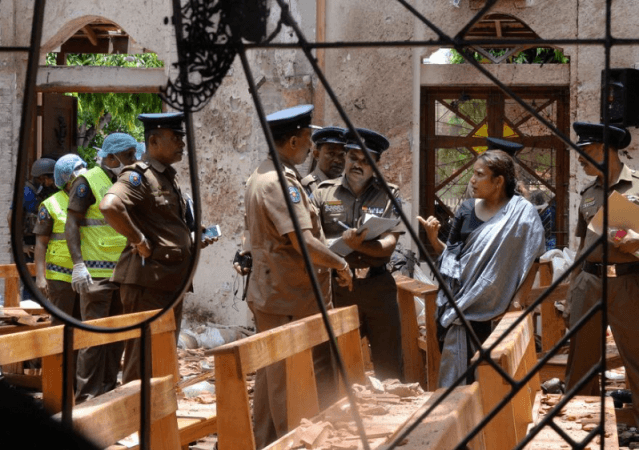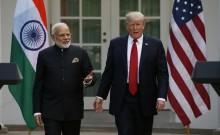
A day after close to 300 people died in bomb attacks at churches and luxury hotels, Sri Lanka has said local jihadist group National Thowheed Jamath was behind the serial attacks on Easter Sunday. The government also accepted earlier reports that foreign intelligence agencies had warned of the serial bomb attacks, Bloomberg reported.
"There had been several warnings from foreign intelligence agencies about the impending attacks ... Persons named in intelligence reports are among those arrested. Some named in the reports had died during attacks," Sri Lanka's Health Minister Rajitha Senaratne said at press conference in Colombo.
"We don't see how a small organization can do all of this. We are now investigating international support for the group and their other links," he added.
"National Thowheed Jamath was involved. It is a local organisation, we don't know whether they are linked to outsiders. All those arrested are locals," the minister added. He said the investigation agencies are ascertaining whether NTJ, had international support.
In the aftermath of the Sunday morning attacks on catholic churches, and key luxury hotels in the heart of Colombo where freign travellers stay, experts had commented that the bombing bore the hallmarks of a typical international Islamist terror strike.
Even as arrests were made, the Sri Lankan government had not hastened to name the suspects for fear that it would give rise to communal tensions. The government ordered a curfew on Sunday, which was lifted early on Monday morning.
Foreign victims yet to be identified
No terror outfit has so far claimed the responsibility for the attack, which shattered the relative peace the island nation enjoyed after it decimated the Liberation Tigers of Tamil Eelam (LTTE) in 2009.
Apart from hundreds of minority Catholics who were killed in the coordinated bombings at several churches, dozens of foreign nationals were also killed. The foreign victims so far identified are from countries such as India, Portugal, Turkey, Australia, the U.K. and U.S. The authorities said as many as 25 victims, presumably from foreign countries, are yet to be identified.
Will seek foreign help, says President Sirisena
Earlier in the day, investigators said as many as seven suicide bombers took part in the attacks. Two of the suicide attackers blew themselves up at the Shangri-La Hotel.
Sri Lankan President Maithripala Sirisena said his government will request foreign help in tracking down international operators behind the dastardly attack. "The intelligence reports (indicate) that foreign terrorist organisations are behind the local terrorists. Therefore, the president is to seek the assistance of the foreign countries," a government statement said.
National emergency declared
President Sirisena also said the nation will be under an emergency from the midnight of Monday. "The government has decided to gazette the clauses related to prevention of terrorism to emergency regulation and gazette it by midnight," the president's office said.
NTJ, a radical Islamist organisation, has been active in Sri Lanka for some years. It grabbed headlines last year after the vandalisation of Buddhist statues in the country.
The April 11 communiqué sent to the security agencies by a senior police official, alerting threat to churches, had mentioned the National Thowheeth Jama'ath, according to the New York Times.
NTJ denies role in attack
Meanwhile, the suspected outfit had earlier denied any role in the Sunday carnage. It decried the attack on its Facebook page and demanded strict punishment for those who carried out the attacks, NYT added. Governor of The Eastern Province, Mahamood Lebbe Alim Mohamed Hizbullah, also said on Sunday NTJ had no role in the attacks.
"Some people claim it is Thowheed Jamaat. We are investigating. We are consistently investigating but there is no evidence against any party, any community or any group. They are innocent but we are sure we can identify them (the perpetrators)," Hizbullah told a local publication.

















